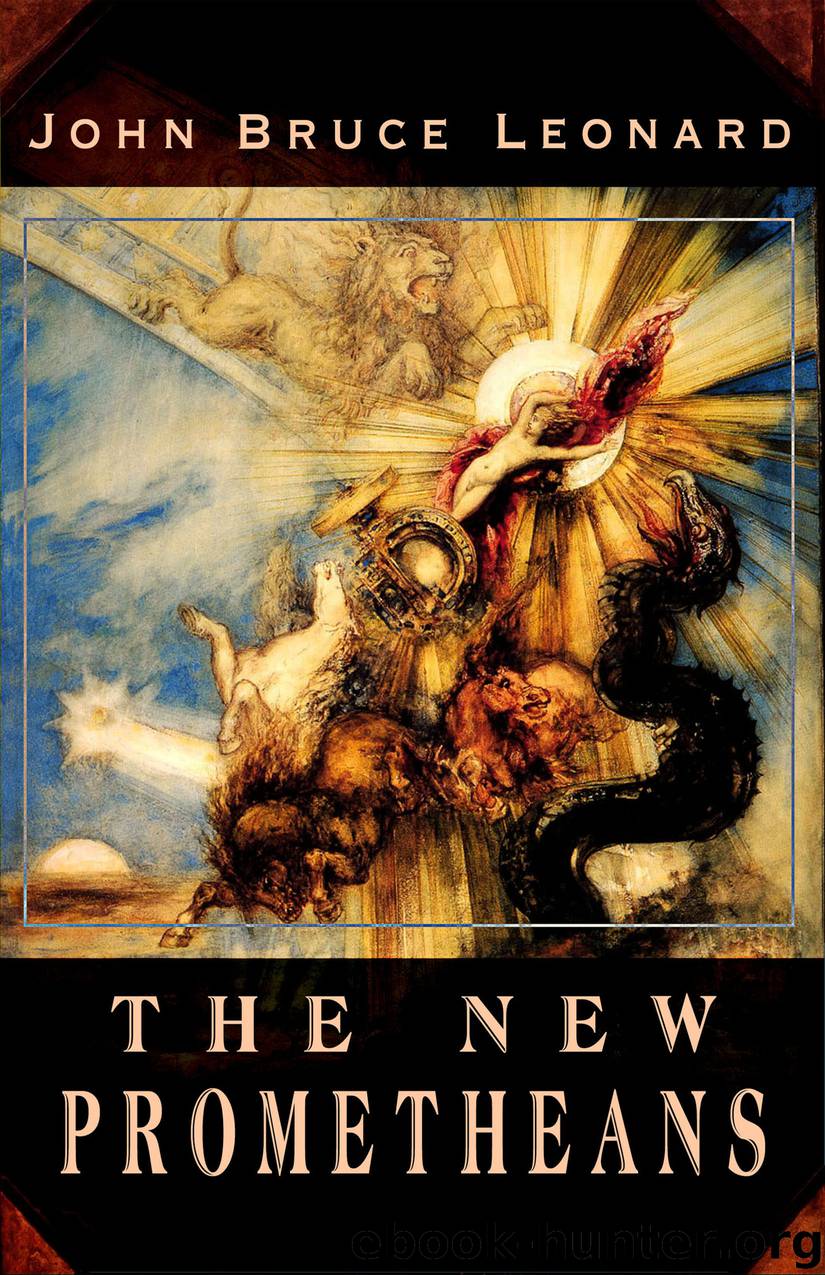The New Prometheans by John Bruce Leonard

Author:John Bruce Leonard [Leonard, John Bruce]
Language: eng
Format: epub
Tags: politics, New Right, conservatism
Publisher: Arktos Media Ltd.
Published: 2019-08-11T22:00:00+00:00
Part III
The blood which binds one to one’s family and to one’s people is treated throughout The Worm Ouroboros as one of the strongest and least questionable motivators of human action, and proves to be finally decisive in all the characters to whom we are presented. All, that is, save one.
This is a most intriguing case, the case of Lord Gro — so far as I know, the first noble turncoat in all our literature, and outside of Socrates the profoundest poetic representation of a philosopher of which I am aware. This Gro belongs neither to the Demons nor to the Witches. He hails from the kingdom of the Goblins, which he betrayed for the good of faltering Witchland, on the eve of the Goblins’ victory — a truly anomalous proclivity which lands him on both sides of the war between the Demons and the Witches, depending on who is further behind in the game. He is described as being enamored of lost causes. Lord Juss of Demonland relates Gro to us thusly: “[He is] a philosopher. I knew him well of old in Goblinland, and I judge him to be one who is not false save only in policy. Subtle of mind he is, and dearly loveth plotting and scheming, and, as I think, perversely affecteth ever the losing side if he be brought into any quarrel; and this dragged him many times into misfortune” (VIII). Not false — save only in policy! That is a remarkable statement, and bears pondering.
Lord Juss, one might say by contrast, is not false in anything, including his policy. He is a man of his promises: when he makes a great oath to rescue his brother Goldry, he is willing even to thrust aside the exigency of war with the Witches to fulfill his word. Lord Gro has a very different idea about oaths: “But he, rising up, said, ‘Madam, this and thy noble words hath given such rootfastness to the pact of faith betwixt us that it may now unfold what blossoms of oaths thou wilt; for oaths are the blossoms of friendship, not the root’ ” (XXV).
One is reminded of the furious argument between Pike and Dutch in Sam Peckinpah’s The Wild Bunch over whether an oath depends on the man that gives it or the man that receives it — whether it is permissible to break an oath made to a worthless person. Gro’s belief that it is permissible, his strange numbness to ideals, seems related to his philosophical spirit, the spirit of wandering, which owes neither love nor allegiance nor fidelity to anything or anyone. Indeed, those words that Gro whispers to his horse are among the finer descriptions of the philosophical mood that I have found: “Come, gossip, we must on, and marvel not if thou find no rest, going with me which could never find any steadfast stay under the moon’s globe” (XXV). To such a vagabond as that, the oath can have no binding value, save as it is bolstered by truer considerations. In and of itself, it is a hollow thing, merest words that one speaks easily and can as easily unspeak.
Download
This site does not store any files on its server. We only index and link to content provided by other sites. Please contact the content providers to delete copyright contents if any and email us, we'll remove relevant links or contents immediately.
The remains of the day by Kazuo Ishiguro(7601)
Tools of Titans by Timothy Ferriss(7003)
The Black Swan by Nassim Nicholas Taleb(6237)
Giovanni's Room by James Baldwin(5938)
Inner Engineering: A Yogi's Guide to Joy by Sadhguru(5931)
The Way of Zen by Alan W. Watts(5829)
The Six Wives Of Henry VIII (WOMEN IN HISTORY) by Fraser Antonia(4815)
The Power of Now: A Guide to Spiritual Enlightenment by Eckhart Tolle(4795)
Astrophysics for People in a Hurry by Neil DeGrasse Tyson(4641)
Asking the Right Questions: A Guide to Critical Thinking by M. Neil Browne & Stuart M. Keeley(4627)
12 Rules for Life by Jordan B. Peterson(3780)
The Ethical Slut by Janet W. Hardy(3534)
Skin in the Game by Nassim Nicholas Taleb(3503)
Housekeeping by Marilynne Robinson(3443)
The Art of Happiness by The Dalai Lama(3409)
Double Down (Diary of a Wimpy Kid Book 11) by Jeff Kinney(3302)
Skin in the Game: Hidden Asymmetries in Daily Life by Nassim Nicholas Taleb(3290)
Walking by Henry David Thoreau(3250)
12 Rules for Life: An Antidote to Chaos by Jordan B. Peterson(3215)
